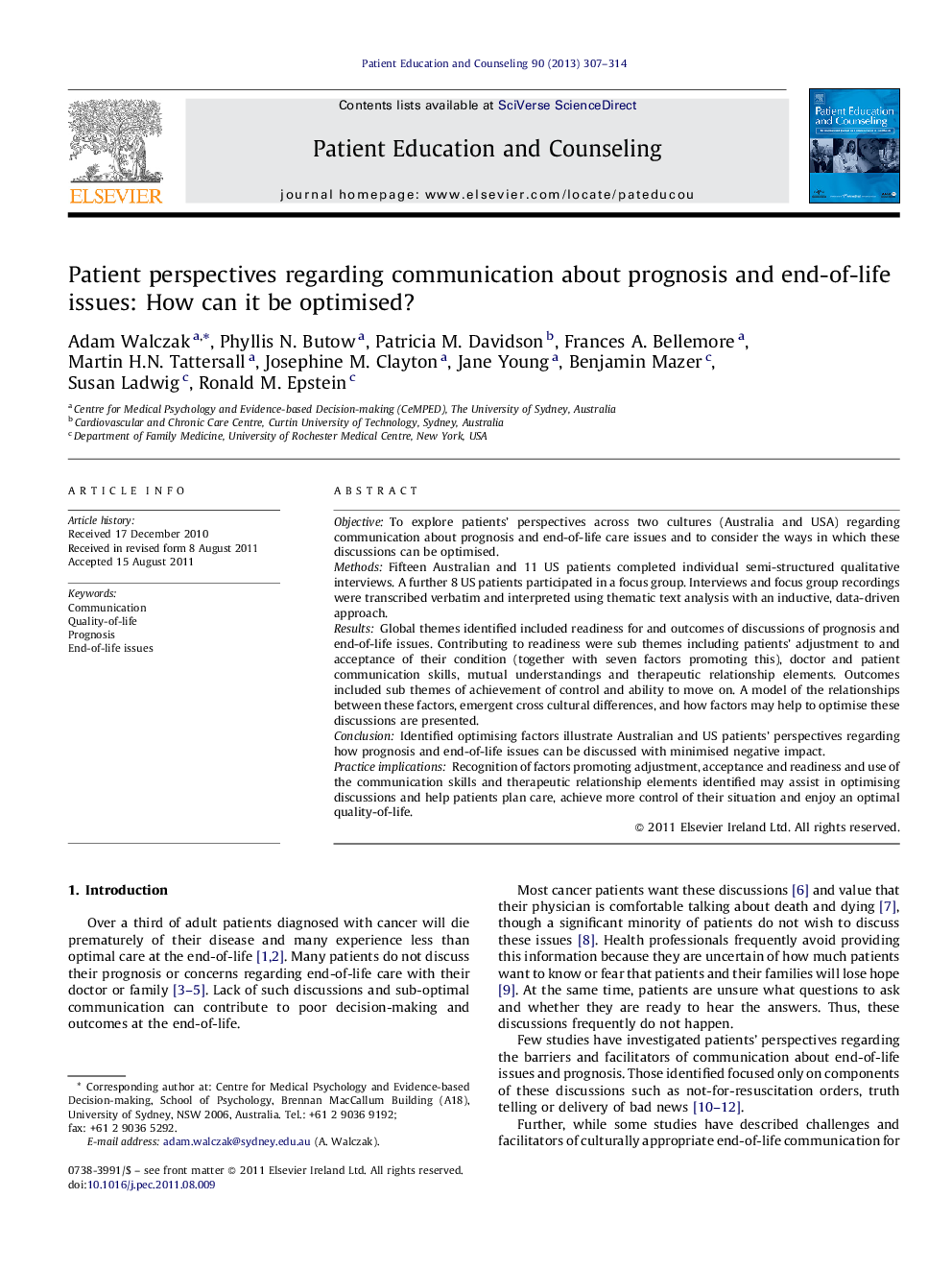| Article ID | Journal | Published Year | Pages | File Type |
|---|---|---|---|---|
| 3813499 | Patient Education and Counseling | 2013 | 8 Pages |
ObjectiveTo explore patients’ perspectives across two cultures (Australia and USA) regarding communication about prognosis and end-of-life care issues and to consider the ways in which these discussions can be optimised.MethodsFifteen Australian and 11 US patients completed individual semi-structured qualitative interviews. A further 8 US patients participated in a focus group. Interviews and focus group recordings were transcribed verbatim and interpreted using thematic text analysis with an inductive, data-driven approach.ResultsGlobal themes identified included readiness for and outcomes of discussions of prognosis and end-of-life issues. Contributing to readiness were sub themes including patients’ adjustment to and acceptance of their condition (together with seven factors promoting this), doctor and patient communication skills, mutual understandings and therapeutic relationship elements. Outcomes included sub themes of achievement of control and ability to move on. A model of the relationships between these factors, emergent cross cultural differences, and how factors may help to optimise these discussions are presented.ConclusionIdentified optimising factors illustrate Australian and US patients’ perspectives regarding how prognosis and end-of-life issues can be discussed with minimised negative impact.Practice implicationsRecognition of factors promoting adjustment, acceptance and readiness and use of the communication skills and therapeutic relationship elements identified may assist in optimising discussions and help patients plan care, achieve more control of their situation and enjoy an optimal quality-of-life.
